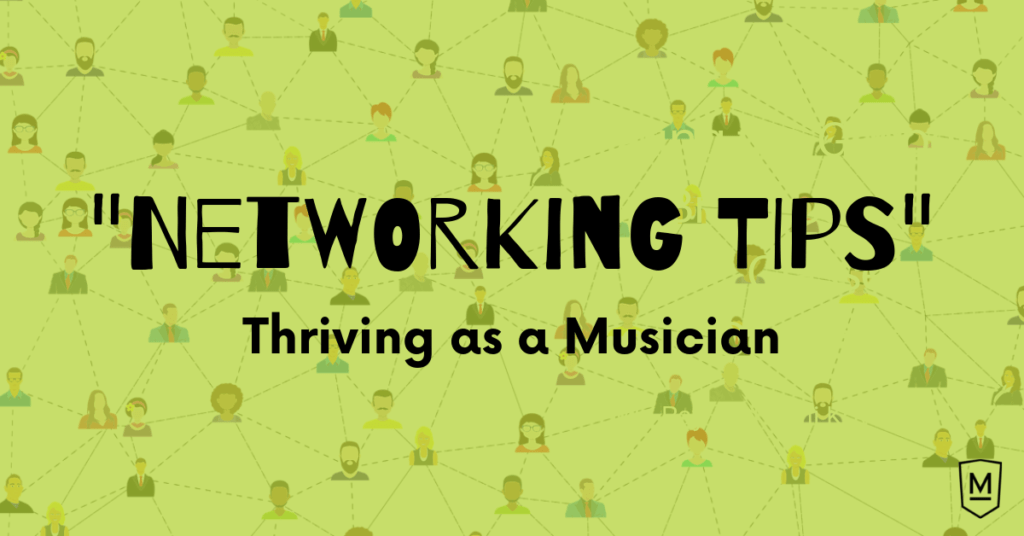Networking: The Key to a Thriving Community
In any community, each member must contribute to the group in order for the community to thrive. The same principle applies to the world of music, creating a need for networking among musicians to bring knowledge, experience, and fresh ideas to the table. Several of MBU’s music faculty weighed in on this topic, bringing their experience to bear on the questions below.
Why is networking important?
“Networking permits us the opportunity to learn from others in our field,” says Dr. David Ledgerwood. String instructor Lewis Rosove elaborated on that statement, noting that getting new ideas from his colleagues is “vitally important” for him, especially since most of the students in his studio play an instrument different from Rosove’s own primary instrument: “It’s important for me to hear people that do play the literature, and how they go about it, because they may give me fresh ideas.” Mrs. Ruth Brown adds that networking allows teachers to keep fresh ideas in front of current and potential students, increasing both retention and admission of music students.
What are specific benefits of networking?
Piano instructor June Brus expressed some of her thoughts: “The sharing of ideas, problems, and discoveries helps everyone to avoid burn-out. Attending conferences, meetings, and workshops will provide plenty of material for discussion among colleagues and foster the climate of helping each other succeed.” As a lifelong learner, Dr. Ledgerwood adds that he often “borrows brains and experience” from other musicians and teachers in order to constantly challenge himself and keep up-to-date.
What are ideal ways to network?
Most of the faculty members answered that social media and electronic forms of communication are great ways to network. Piano professor Janet Tschida believes that connecting with professional groups on Facebook and LinkedIn greatly helps in building beneficial business relationships. She further suggests that attending conferences, joining professional organizations, and enrolling in higher education are great ways to not only make contacts but also form valuable relationships that will “challenge one another to excel musically and grow spiritually.”
“The best way to get involved is to volunteer in some way,” states Brus. Whether it be hosting a meeting, chairing a competition, or just making coffee and setting up chairs, volunteering will create opportunities to meet others in one’s profession.
Rosove recalls that he has been able to network by utilizing the incidental contacts he has built up over the course of his career. Whether it be the teachers he met during Suzuki training or former colleagues from his time with the MSO, the connections made along his journey as a musician have been some of his most profitable and readily available resources.
Ledgerwood suggests that seeking to learn creates the best opportunities for networking. Asking questions via Facebook and/or email, discussing books and articles related to one’s profession with peers, and attending conferences showcasing others in the career field are all great ways to learn from other professionals.
How can I make myself a desirable networking partner?
“Be a lifelong learner,” says Ledgerwood. By continually expanding one’s knowledge and experience, a musician will invariably draw others in the field to value their connections with him. Also, says Ledgerwood, “Be humble, and realize you do not have all the answers.” Someone who thinks he knows everything about a certain field may deprive himself from valuable input from many knowledgeable, proficient people.
Tschida offers many of the same suggestions – being a lifelong learner, approaching conversations with a desire to learn, and maintaining a spirit of humility. She advises that being willing to mentor and be mentored ensures a constant input and output, keeping oneself full of fresh ideas. That freshness is an attractive quality in a networking partner. In addition, she advocates for the essential traits of positivity and diversity. “Anyone can complain,” she says. “Be the person who finds the good in others.” Even fields other than music, such as educational psychology, leadership, and marketing, have much to offer both performers and teachers.
Brus gives three simple tips to make oneself a desirable networking partner: “Be open, be friendly, be helpful.”
Without networking, the quality of teaching and music making would inevitably decline, with individuals able to work only from their own experience and ideas, limited to the scope of their own creativity. Networking builds and facilitates community in the musical world by fostering the give and take that communities require to thrive.


